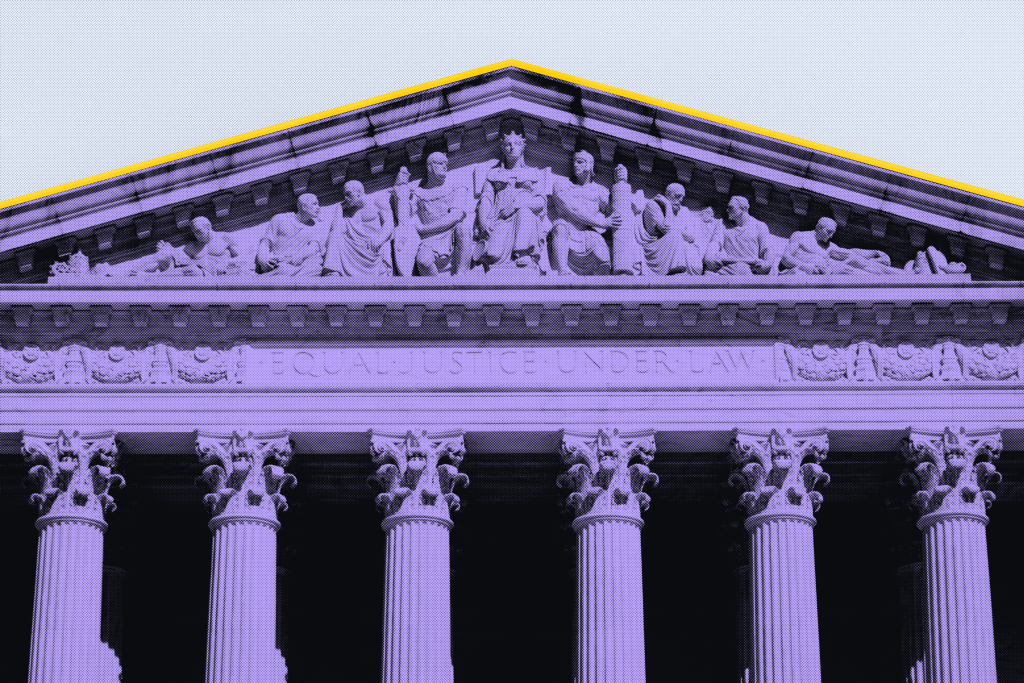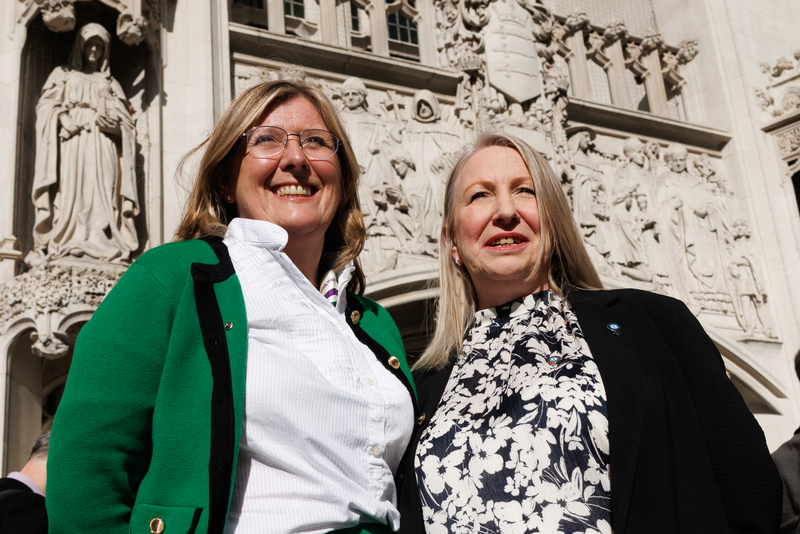This is a transcript of the podcast Stefan Rust on crypto regulation, inflation and stablecoins between GRIP Senior Reporter Carmen Cracknell and Stefan Rust, founder of Truflation and former CEO of Bitcoin.com.
[INTRO]
Carmen Cracknell: Welcome to The Grip Podcast. Joining me today is Stefan Rust, founder of Truthlation and former CEO of Bitcoin.com. Could you just explain in your own words a bit about your background and how you got into crypto?
Stefan Rust: I was running a developer agency, and we were managing developers for big tech companies around the world. There’s Qualcomm, Intel, Sony, Ericsson, Huawei, Lenovo. What we were doing was hosting hackathons, and with the developers, we were also doing micro consignment. We were subcontracting work on behalf of the big tech companies. One of the developers wanted to get paid in Bitcoin, and this was back in 2012.
I looked into it and did some research, and it was a Bitcoin J wallet that I found was the way to hold on a self-custodial basis your own coins. Bitcoin J was written in Java. I used to work at Sun Microsystems, and so I knew the developers there. They pointed me to eBay at the time, to somebody who was going to do an OTC trade on eBay, and using PayPal to pay that trader.
That’s how I first bought my Bitcoin. After that, I paid the developer, and it was instantaneous, no transaction fees during a Skype call where I could remit to somebody around the world with no middlemen. To me, compared to banking, where you had to wait seven days, you had to pay a $700 fee to wire a tiny amount of money around the world, and not to know what the recipient headaches were on the counter side, that was a 100x improvement to the experiences you were getting elsewhere.
I then immediately was sold, got into it, found developers building on Bitcoin. We tried to build a Bitcoin network of Bitcoin crypto developers, but then also ran into Roger Ver at a conference who owns the Bitcoin.com URL. That was my journey into it. Took on CEO role, scaled that to 500,000 merchants accepting crypto worldwide, and about 20 million wallets that people had on their phones, particularly. Our whole mission was to build mobile-enabled self-custodial wallets or super apps as you experience them when you have a WeChat app and what you’re slowly seeing come to fruition right now. 2020 came along. Governments have been printing over the last decade ridiculous amounts of money, which was only accelerated in one year alone, 2020 and 2021, when they shut down the economies. That to me was just…inflation’s got to come. Any economic graduate or undergrad or mathematical student could tell you that supply and demand are not going to meet each other.
Ultimately, the supply chain broke down on top of it. Inflation did come. But more importantly, when I was studying how inflation was calculated, it was by the same people that were actually managing the economy. It was a century-old framework, so 100 years old. It was done manually. So there were 477 people going around on a panel basis to go and calculate what people were spending, how the costs were changing across an economy. That’s something we can do a 30, 40, 50x improvement on by just taking and putting our developer mindset on–or taking a developer approach to building this out, which we did. So we now track 18 million items. We have three price feeds per item. We update it daily. And it’s visible for everybody and hopefully provides an education in terms of what and how inflation is calculated and what the constituents are into each of the categories. And the subcategories associated with those categories that then feed up into an overarching inflation umbrella or index that people can see how costs vary and deviate over the course of a year. In some cases, if you’re using the enterprise package, you get to 10 years, you get historical information. That’s my point.
Carmen Cracknell: Sure. OK. Like you said, we’re living in a time of inflation. And I guess, like you said, 2020 and 2021 accelerated awareness of crypto. What can increasing use of crypto do to take on inflation, in your view?
Stefan Rust: So in my view, not only inflation, I think crypto is a new payments rail. It’s a new payment rails. It’s a new custodial service where it’s not one centralized entity holding the coins. It’s actually a decentralized network of node operators or miners that are hosting the blocks that are confirming your state of your wallets or your accounts, how much money you have in your accounts, how much did you share or did you move the money around? Who did you send it to? All of that is tracked by a network of servers, a distributed ledger. And they hold it accountable. They make sure it’s accurate.
Bitcoin has been the oldest and the most robust. And I’d say also because of that aspect to it and being the digital gold, if you will, they have maintained and really not adjusted their code base very much. Every four years, you may get a bit of an update, e.g. taproot. But they want to– I mean, that has to stay as stable as it possibly can. But the fact that you can now remit money, improve capital efficiencies that you couldn’t do before– I mean, just the other day, I was talking to Norwegian Airlines. Norwegian Airlines– actually, I wasn’t talking to them. I was listening to them. In 2019, I don’t know if you remember, they announced that they were going to accept cryptocurrencies as payment. Why? Because they realized that at any given time, they were having about $1.2 billion sitting in float at the credit card companies or the credit card acquirer.
And so ultimately, they felt that, wow, that’s so much money that we could actually use to be able to improve our operational efficiencies, use to innovate planes, expand. And so they then decided to accept cryptocurrencies as a way to mitigate that and have direct relationships in terms of being able to reimburse or their passengers should the flight not take place.
And today, they now have launched an exchange. So NVX is under their umbrella in Norway. They do their own on and off ramps so they can convert immediately from crypto to fiat. They have an e-money license. They have a banking license in Norway. So ultimately, you’re seeing more and more of efficiencies actually start to come to life. And payments, as originally envisioned in the white paper, the Bitcoin white paper, now actually slowly coming to fruition. And remember, this is only a 12, 13-year experiment we’re that far in, and it’s already a trillion-dollar industry.
Carmen Cracknell: Do you think the issues with the speed of transactions can be resolved? Like you said, Bitcoin is seen as the digital gold, so the store of value. And then I guess the intention is for other cryptocurrencies to be used in daily transactions. Have you seen an increase in the speed at which that can be done?
Stefan Rust: Yeah. I mean, you’re already seeing that, right? A number of different blockchains launching, offering faster networking capabilities. You’ve got new chains coming up all the time. Solana already claims much faster transactions, maybe not as robust, but it’s like also a very young protocol. It’s less than five years old. You’re seeing new networks. I mean, Arbitrum already got a lot cheaper costs in terms of gas fees. You’ve got SWE network coming out. You’ve got SEI, which has really built out an on-chain derivatives, fast, more moving, chain launching. So you’ve got a number of different activities, always trying to improve the speed of a transaction and getting closer and closer to what you get in centralized servers and centralized databases.
Carmen Cracknell: Moving on to sort of the regulatory issues that have been all over the media recently, obviously there was the collapse of FTX last year. Firstly, do you think the fallout of the FTX issue will continue or is that largely over?
Stefan Rust: I mean, I wouldn’t say it’s over because I think the auditor is still going through it. There’s an open court case on that, so I don’t think it’s going to be over. I think the market itself, at least in the crypto industry, we’ve sort of moved on and written off the crooks that were running that business and that operation and are just trying to out innovate and continue to build. But I think just to highlight that FTX was a regulated entity. It was regulated in certain jurisdictions outside the US. It was an equity investment, so a large portion of the investors into FTX were equity holders. It’s like you would invest in any other startup. It’s high risk environment. Unfortunately, the due diligence hurdles were not set high enough maybe, I don’t know.
But why are none of the venture capitalists that were associating their brand name with that held accountable? Is that possible? I don’t know. But FTX used the fact that they had all these investors backing them. But either way, here or there, it doesn’t matter. We can’t change the past, but we can work and learn from the past to improve the future. And we’re seeing right now investors are doing a lot more due diligence, they’re taking their time when they do their investments. And yeah, this was the standard. Again, FTX, very much like Celsius, was an equity-related investment deal.
And it’s no different to any other regulated venture capital investment that you would experience. So it’s just unfortunate that it was in crypto. And it’s unfortunate that we had such bad actors as the face of the industry.
Carmen Cracknell: And in terms of regulation in the US, obviously, there’s this court case now with Brian Armstrong and Coinbase suing the SEC. What do you think about that? Is there going to be some kind of resolution in the US in particular on regulation?
Stefan Rust: I think the downside for the rest of the world is whatever the US decides still does impact everybody else. It will impact the whole world. Whether you’re in the US or not, the whole world is going to be impacted by this. Number two is if you were Brian Armstrong and Coinbase, and you felt that you were applying for a listing, you were doing all the S1 licensing submissions, the filings that you needed to do, you had auditors, you had accountants, you had lawyers, approve everything that you were doing, you had consultants come in and verify and document all your business processes. You then submit that. You spend maybe, I don’t know, a course of a year, maybe nine months to a year, building all of this out, the time invested. You’re spending maybe across the board in terms of fees and on top of the time, $10 million to apply and then get approval and then needing all the liquidity associated with that to do a listing. You get approval. You get the stamp of approval only to then be told after you’ve got an approval that this is now illegal.
It’s oxymoronic and how a government regulatory entity can have such a negative stance on something that is actually so critical to an economy, especially if your economy and the currency driving your economy dominates 80 plus percent of global trade.
I think Brian Armstrong just shared a Twitter feed. I don’t know if you saw it just yesterday or where he has Gary Gensler saying that ICOs are legal. The money coming out of ICO fundraising is actually utility. It’s not a security.
Carmen Cracknell: Yeah, it’s–
Stefan Rust: It’s a sport where he’s a professor.
Carmen Cracknell: It’s very confusing. Why do you think the US regulators are dragging their heels about this?
Stefan Rust: I’m going to put on my conspiracy hat. And if you think about it, who is funding the SEC? Where did their money come from? And how were they established? I mean, ultimately, their heritage is tied to Wall Street. Wall Street was not a part of seeing Bitcoin grow from zero to a trillion dollars. They missed this whole industry. And they are mad that they did not see this opportunity. And as a result, they just want to punish everybody. Why? So that they can build out the rails and the support within the given framework, that the regulatory framework that is there today, so that they can force all of blockchain to comply with a framework that they know and they are inherently embedded in, in terms of operational, in terms of government support, in terms of market support, in terms of consumer awareness. And so ultimately, everybody thinks, oh, it has to be regulated like it is in a bank. And so, but think about the inefficiencies of the bank. Every single dollar a bank earns, 70 cents on that goes to compliance. What is compliance? Compliance is obedience. So obedience to the regulator, not the consumer, to the regulator. And compliance is legal fees. It’s accounting fees. It’s auditors. And guess who owns all of the real estate in any given city around the world downtown? It’s the auditors. It’s the accountants. It’s the banks. It’s the lawyers. So it’s like all the industry have moved out of the city centers. They’ve moved into suburbs. It’s a bit cheaper. They’ve moved into, you know, sort of second tier cities where they can afford the real estate and things like that. So it’s just, I think there’s definitely a huge conflict of interest. And I would love for somebody to really just to do due diligence on where lobbying dollars going, what are the bodies that are representing the existing incumbents and how are they influencing the key constituents from Ben Sherman to Elizabeth Warren to AOC to Gary Gensler to, you know, etc.
Carmen Cracknell: Yeah. So do you even think because there seem to be two camps of people, there’s purists who don’t want the crypto industry to be regulated at all and then people who say it’s a really good thing because it will bring kind of the normalization of the industry. What do you think?
Stefan Rust: I’m sort of maybe a bit mixed. I think that a lot of the regulations in crypto are defined and locked into what we call smart contracts. So government, the transactions of crypto are extremely transparent and a large case is maybe too transparent. So certain people don’t want to allow others to know what the movements are of the monies that are going back and forth. And so I’m sure there are improvements. There are activities taking place around ZK Sync and ZK Snarks where you can actually sort of act as pseudonomously. Oh man, I can never say that over. But yeah, so you can have it.
Yeah. Anyway, and so as a result, I personally believe that we should be investing instead of investing hundreds of millions and hiring thousands of people to chase after fraudulent or block everybody from doing transactions and having a freedom of flow of money around the world. And then actually having a task force that actually goes and audits maybe available accounting on and ledgers on the blockchains, audits and verifies and having a task force that can go after the bad actors that are creating scamming, the bad hackers that are attacking and stealing money from locked in vaults that have fraudulent code and don’t return that. That’s what we need the funding of governments to help us go after versus actually trying to block and make it as cumbersome and more compliance and more forms and regulate sort of friction to facilitate trade. The beauty around crypto is it’s frictionless and anybody can participate.
And it’s transparent. I mean, it is immutable, which means that if you do a bad transaction, you hope that the counterparty is acting in good faith and will return the funds, but you cannot return a bad transaction. And it’s censorship resistant. So once it’s locked in, it’s there and everybody can see it, which is another good thing if you’re trying to trace it back. If you look at what’s happened, the people that hacked Bitfinex for their Bitcoins back in, when was that? 2016, 2017? I can’t even remember. They caught them six, seven, eight years later. They caught all the rogue actors. Why? Because they actually found and used the open ledgers to follow transactions. It takes some time, but it takes some time to catch a criminal anyway.
Carmen Cracknell: Yeah, stepping back a bit to the regulation stuff, just so that I’m sort of following my questions. This MiCA, MiCA not sure how it’s meant to be pronounced, the European law, do you think that will have a kind of domino effect in really galvanizing other jurisdictions to come forward with legislation? There we go.
Stefan Rust: So there you go.
Carmen Cracknell: I got lost in my words as well.
Stefan Rust: I mean, it’s a good thing and it’s a step in the right direction. At least I think it’s put a mark in the ground. I actually don’t think the regulation itself is good. It works in favor of the incumbents. It does not help and foster innovation. It does not foster disruption, and it works in the favor of ultimately the existing banking establishment, the more established crypto players that can afford all of this. All it does is build out and strengthen the centralization of Brussels in Europe. And so unfortunately, I’m very mixed minds.
For example, if you want to launch a stablecoin in Europe, it has to be Euro-denominated, and then you can launch a second one. But if you don’t have a Euro-denominated stablecoin, you can’t do anything. I mean, just things like that. It’s like, what’s the point of that? You’re now forcing me to have a Euro-denominated stablecoin. Certain things like that I find…
Every time I have to go back to my friends in Brussels to get approval, and then it ultimately becomes who has the bigger budget, who has the more lawyers, who can afford the lobbyists to get access to the right people, how can I kowtow the right people to get the right kind of relationship, to then get the approval needed within a time frame that is acceptable versus three years applied. I said to him before, I got no response. So I think those are all things that are traditional blockages that try to slow down innovation and protect the incumbents so that they have enough time to change and adapt.
Carmen Cracknell: What do you think about CBDCs and the role of stablecoins going forward?
Stefan Rust: Yeah, so I’m not a big fan of CBDCs. I think it’s just, again, a stronger exertion of centralized institutions. And those are not even elected institutions necessarily. But either way, even if they were elected institutions that are managing the financial policies of an economy, they are going to be, you never know who gets elected into power and how they might want to abuse the power. And the more control they have over money, the more influence they have and power they have over a population. Switch off your money. Oh, you had too much coffee today. Your caffeine count is going to be too much. I’ll shut down. You can’t purchase any more coffee at a cafeteria or a brewery or a Starbucks or wherever you might be because your heart rate, we found out in your DNA testing that your heart rate will go, I don’t know, whatever it might be. So they’re just a whole set of controls. Or here’s your money today. Your salary gets paid. If you don’t spend it within the months, you lose it. Who knows? Things like that could happen to, again, stimulate the economy, which is you can see that that path to evolution could really happen and take place. Stablecoins, I think, are brilliant. They’re a brilliant innovation.
There have been some abuse around different stablecoins in terms of, I mean, there’s an economic word called exogenous and endogenous where you’re actually having your own assets as collateral and then minting against your internal assets. And you’re able to then prop up the price of your internal assets to show that you have more collateral versus exogenous, where you’re using third-party assets verified by third-party market pricing. And those then provide the collateral for your stablecoin. I think the way to go forward is exogenous stablecoins and identifying what the foundation of that collateral is, number one. And then number two is just being able to ensure that there is sufficient collateral against the circulating amount. And there we have, again, the blockchain has taken a proactive solution in that area providing proof of reserves. So at any point in time, you can see what is the collateral and then what is the amount in circulation. You can then offset the collateral against debts, and you can see that on-chain, live, real-time, not having some auditor who you pay, by the way, to come in, review your books, and six months later, give an attestation that you believe that this is right and the auditor says that this is good and accountable. Because ultimately, what we’ve seen in various financial crises is that these auditors are equally prone to misalignment.
Carmen Cracknell: Sure. And I think one of your predictions for this year was recovery. What does this look like to you?
Stefan Rust: I mean, if you look at crypto already this year so far, we’re nearly up 100%. So Bitcoin, I think, was down about 15,000 or just above that. It went up to 30,000. It’s come back down again. Ethereum is sort of the same in terms of percentage-wise. My view is that I think once the interest rate sort of starts to flatten out, and I think we’ll see a 25 basis points hike next week when the Federal Reserve, the FOMC, gets together. And we, as a result, I think that will then be holding for quite a while. And then I think crypto will take off. It will impact, I think, particularly the financial institutions, the traditional financial institutions. If you look at the First Republic Bank in the US, what happened to them? They had their earnings announcements. People realized that they had a withdrawal of some $80 billion in terms of deposits. Where did that $80 billion go? It went to, guess who, JP Morgan, who announced poor profits for some funny reason or rather. And on that side, and ultimately, what happened when they reported that their stock tanked 30% instantaneously. I mean, literally, in one full swoop, it dropped by 30% their market cap and their stock price. What happens if interest rates move up another 25 basis points? What does that mean for the cost of capital and the liquidity requirements at these banks? I think the surge in crypto pricing earlier this year has largely been from tech companies who’ve withdrawn their money out of Silicon Valley Bank, especially Asian tech companies that have now been told that the Hong Kong government is actually going to, Hong Kong banks will now support them with on and off ramps. Will that happen? I think we have to wait and see whether that actually happens, but they’ve been told that that’s the case. So they’ve moved, taken their money out of SVB and moved it into alternative asset classes as a hedge. And so maybe some of that has gone into crypto and some of that has dispersed across 15,000 other banks or 15 different other banks where they maintain their balances up to the insured amount. The other thing I thought was pretty interesting was what was the name? Mercury Bank announced that they are increasing the insurance per account up to $5 million. So I’m sure they saw a big influx as well.
Carmen Cracknell: Do you think the price of Bitcoin will stabilize and be less volatile and that there’ll be less of a focus on the price up and downs in the next… Well, when will that happen?
Stefan Rust: That’s the big guess. I think Bitcoin will go up. Ethereum will go up significantly this year.
Prognosis has ranged from $1 million in the next three months, all the way to 100,000 by the end of this year. I sort of tend to err on the 100,000 by the end of this year. I think Ethereum has the potential to break 5,000 by the end of this year. And then there’ll be other coins that come in and sort of help out and grow as well. Stability will come at some point once the volume is significant enough. And I think given the limited supply of Bitcoin, you will just always see that being the reserve and look at where it is. I mean, Bitcoin itself is I think just air touching on the $1 trillion range or $800 million or something. And you compare that to gold, physical real world gold. Gold is at $10 trillion plus. So just alone that analogy, and if this is the digital gold that I can have on a USB stick and take around with me and portable, it’s my gold. Nobody can take this away. It’s not sitting in some vault custody that I actually have to go and claim in a certain jurisdiction that I’m hoping is not going to have a sort of regulator that’s going to then confiscate it or whatever. I think that you can see that 10x improvement on the Bitcoin price is an easy assumption. The question is when, how long will that take, what is the adoption of that ratio? I think that’s all going to happen.
Carmen Cracknell: Well, I think that’s a good place to wrap up. We definitely covered a lot of ground. Is there anything I’ve missed that you want to add?
Stefan Rust: Yeah, no, I think just how do we identify and I mean, our or what I’m keen on seeing is more and more transparent solutions on the blockchain that hold accountable the existing institutions that are governing an economy and the population and saying they’re acting in consumer interest, whereas sometimes I don’t always feel and I think we all can resonate with that, that we don’t always always feel that they are actually acting in the best interest of the population or even the country or the nation, they’re actually acting in their self-interest or in the interest of a specific industry vertical that’s influencing their mindset and their thinking. So how do we actually bring more governance and create more efficient governments associated with streamlined governance that can be on the blockchain and in the form of smart contracts that can be audited, replaced, renewed, deprecated, etc. And so I’d love to see more of that happen. How do we build a coin that is pegged to the cost of living so every time you earn your money for the work that you do not lose your purchasing power but you retain your purchasing power so that you may want to save money and that money that you save has still got the same purchasing power in three years time that it had when you worked so hard for it today and you don’t lose that purchasing power. Those are things that I think we want to see at Trueflation, really want to see come to fruition. Over time, I also think that we’ll see more and more crypto activity result in investments into real world assets and infrastructure. How do we need a new energy plant? We need a new road, we need a new school. Okay, you can stake your money here, we’ll use the funds to invest in it, and then everybody that invested in it gets a piece of that reward associated with it or because you invested in it, you are guaranteed a certain amount of kilos of rice because you invested in it, that land yields that rice, and then you get the rice. That land yields the kilowatts that energy plant and you are in that neighborhood, you are on that grid, you then ultimately do never need to pay for the energy anymore because you’ve already prepaid for it in your investment. Those are abilities that tokens can offer to individuals but that’s a journey that we’ve still got a couple of years to work towards but I think that is the new economy built on new infrastructure engaged by a decentralized nature with a decentralized governance that is for a modern economy and I think we need to think modern for a modern generation and make sure that this technology becomes the choice of the new generation.
Carmen Cracknell: Great way to end, yeah definitely food for thought there. Awesome, well thank you so much Stefan, that was a really interesting chat and yeah thanks for your time, hope to chat again soon.
Stefan Rust: No thank you, thank you for being here, thanks for time and I hope the audience found this helpful.
















